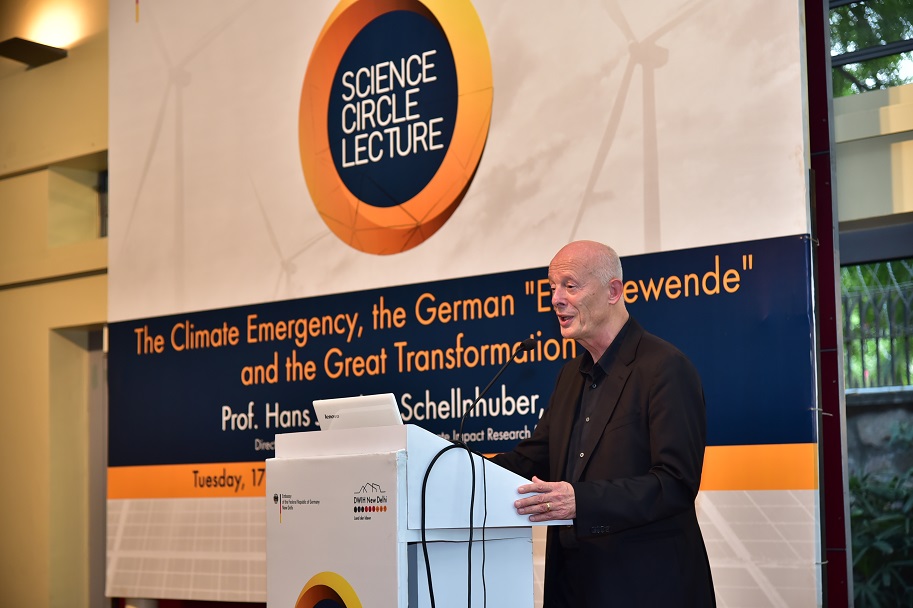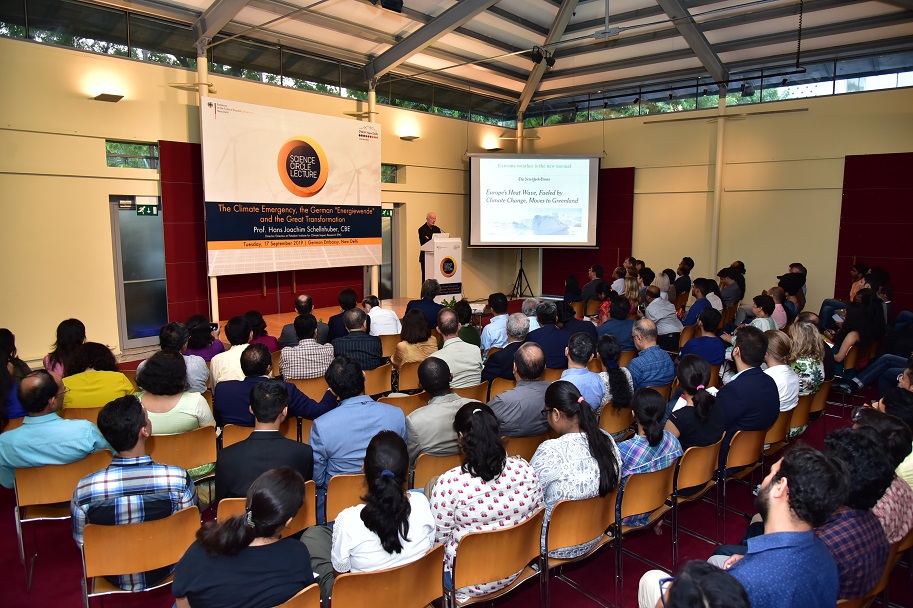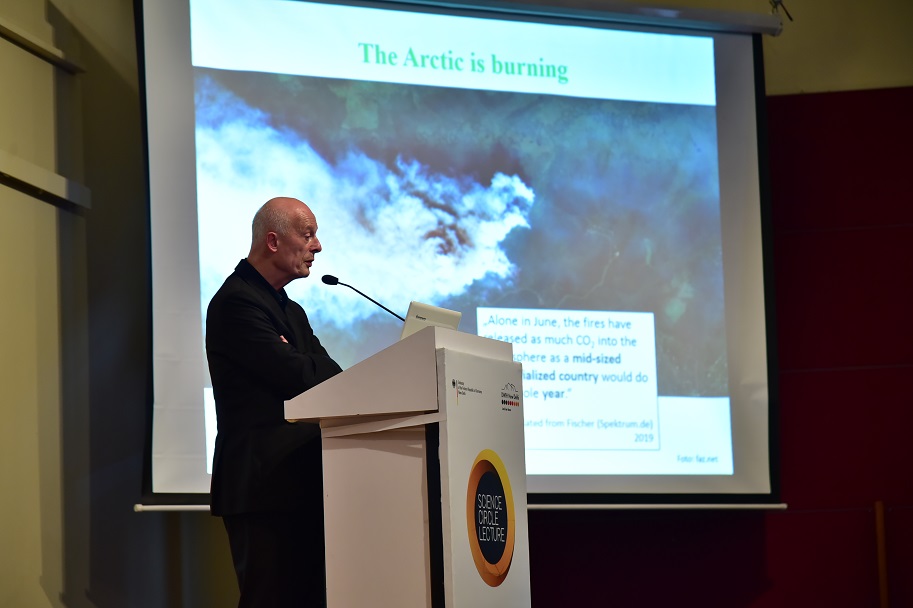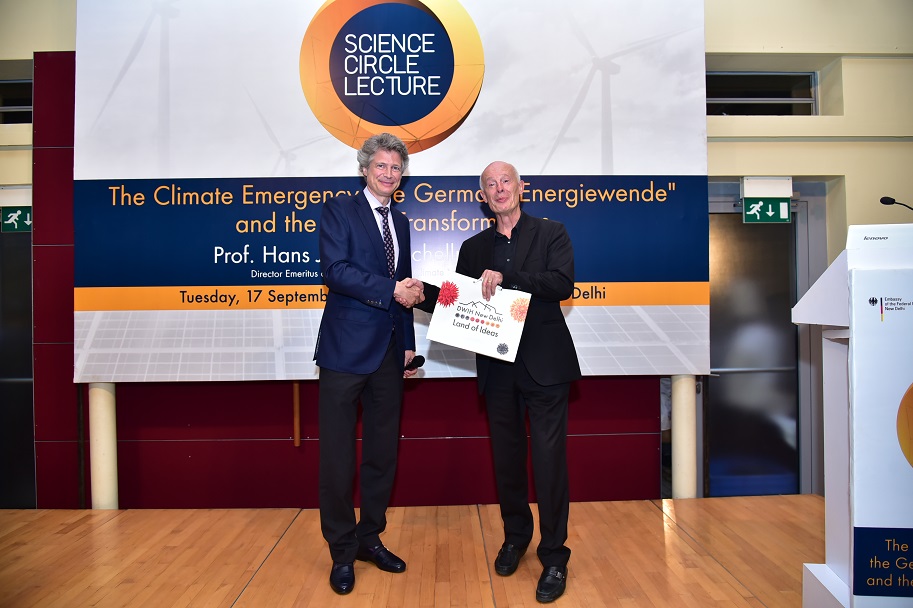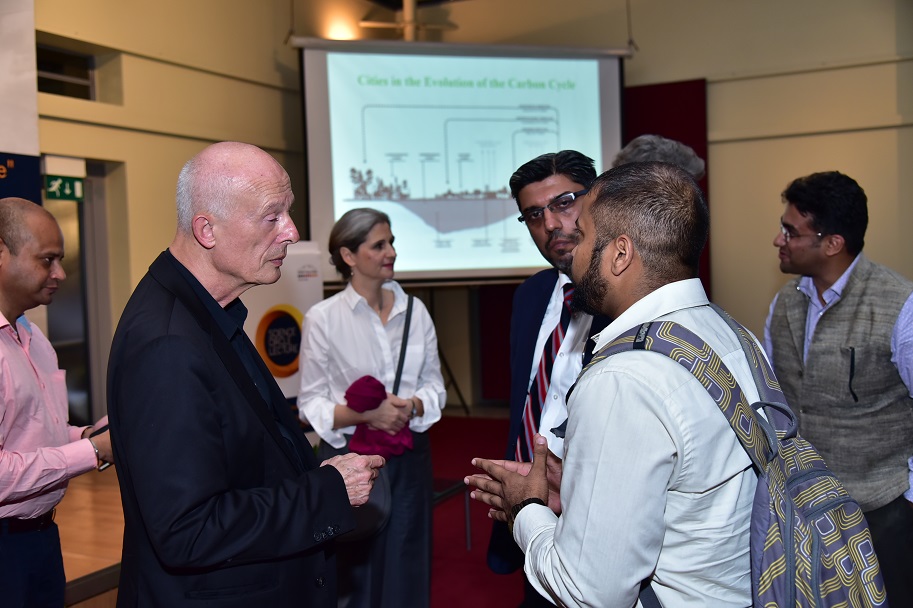The Climate Emergency, the German "Energiewende" and the Great Transformation
The DWIH New Delhi, together with the Embassy of the Federal Republic of Germany had the pleasure of hosting the eminent climatologist Prof Hans Joachim Schellnhuber, Director Emeritus of the Potsdam Institute for Climate Impact Research (PIK), for a Science Circle Lecture on The Climate Emergency, the German “Energiewende” and the Great Transformation, on 17th September 2019.
Date: Tuesday, September 17, 2019
Venue: German Embassy, New Delhi
Deputy Chief of Mission at the German Embassy New Delhi, Dr Jasper Wieck, highlighted how climate issues have been a cornerstone of the Indo – German relations, in his opening remarks.
In his presentation, Prof Schellnhuber compared the climate emergency to a ticking bomb, likening the earth to a plane whose pilot was asleep and whose fate was in the hands of those onboard (the population). He said that the passengers (the world population) had to maneuver a safe landing (save the planet) by pushing the right buttons on the control panel in the cockpit (reform our actions and lifestyle).
The urgency of the climate crisis comes to light when we look at the dangers of even a 2 degrees’ Celsius increase in the global mean temperature. Global warming at this pace could expunge the coral reefs of the world, not to mention melt the Greenland ice sheet and the Alpine glaciers completely. Even as we speak, temperature increases are disrupting the jet stream (strong, fast flowing meandering air currents in the earth’s atmosphere), which in turn is leading to more frequent extreme weather events in the Northern Hemisphere, including the very recent heat wave in Europe, that also affected Germany, where peak temperatures of about 42.6 degrees Celsius were recorded, like never before!
Similarly, with a 5-degree increase in global mean temperature, we would lose almost all of the world’s ice, many of the its coastal cities like Mumbai, Venice, Singapore, and Florida and also its vital ecosystems, including the Amazon Rainforests. It would be enough to spell the end of civilization, as we know it.
Warning about the severity of all of these Tipping Elements, he emphasized that decarbonizing the planet in the next 30 years is the only way out. Through a simple analogy, he explained that a risk of 4 degrees increase in global mean temperature, with a 10% probability, when attended to in the reaction time of next 20 years (out of the 30 available as intervention time) would still result in a best case scenario loss of $6 trillion in monetary terms (given that we wish to limit the damage to $100 trillion).
He spoke about Germany’s Energiewende (switch to renewable energy from fossil fuels and nuclear energy) as providing orientation in this respect, especially for a country like India, where through the enormous potential of solar energy, even the remotest of villages could be electrified.
The Energiewende has resulted in renewable sources constituting about 35% of Germany’s energy sources and the figure is only expected to go up, with the sunset clause on coal fired power plants in Germany being the year 2038.
Ending the lecture with a Q&A session, he urged those present to think about the planet, about rapid material growth at the cost of sustainability and to do their bit in their own way, just as school students across the globe are doing, by striking and protesting against political climate denial under Fridays for Future!
With more than 120 participants in attendance from universities, think – tanks, industry, governmental and non – governmental organisations, the lecture was one of the most anticipated events of the DWIH New Delhi.
About the speaker: Prof Schellnhuber has served as scientific advisor to a number of eminent political and religious leaders, including the German Chancellor Angela Merkel, European Commission President José Manuel Barroso and Pope Francis. He also contributed in various ways to the Intergovernmental Panel on Climate Change (IPCC) that received the Nobel Peace Prize in 2007. He has been awarded the Order of Merit of the Federal Republic of Germany (2011) and the Blue Planet prize (2017), the world’s most prestigious award for pioneers in environmental science.

